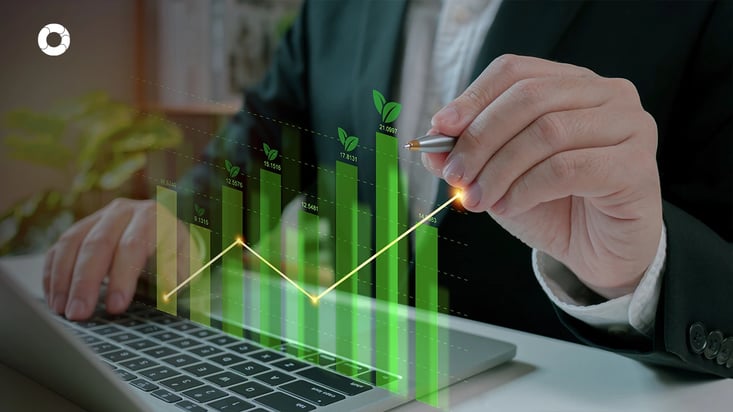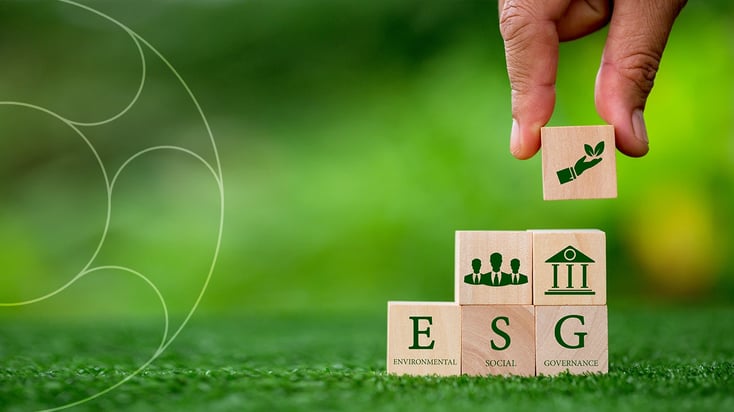Greenwashing and its relation to reputational risk
Greenwashing and its relation to reputational risk
5:52

Currently, sustainability is one of organizations' main challenges, generating long-term value considering environmental, social, and governance criteria, also known as ESG.
However, many organizations worldwide have fallen into the deceptive practice of greenwashing to achieve this goal and demonstrate to stakeholders, from consumers to shareholders and governmental bodies, that their business practices are environmentally friendly and sustainable.
In this article, we tell you a little more about what greenwashing is, its consequences on an organization's reputation, and how to demonstrate a true commitment to environmental care and the protection of human rights without the need to spread false information to appear sustainable.
What is greenwashing?
In general terms, greenwashing is a marketing practice used by organizations to show a misleading image of their sustainability actions, i.e., it seeks to position the organization as environmentally and socially responsible, but it is not really the case.
What companies that use greenwashing do is exaggerate or falsify information about their products, policies, and commitment to ESG criteria to deceive and show an image that is not the case. With this, they seek to gain public recognition or attract the attention of investors and consumers, who increasingly attach greater importance to environmental and social sustainability.
Behind this, however, the vast majority of the time, there are little or zero sustainable practices, which can even be harmful to the environment.
Some greenwashing actions that are often used by organizations to convey an image of sustainability that is far from reality are:
- Making false environmental claims, for example, saying that plastic packaging is recyclable when it really is not, or assuring that CO2 emissions have been reduced when this is not the case either.
- Omitting negative information about the environmental impact caused by a product.
- Using false environmental labels and certifications or not accredited by recognized entities that validate their environmental commitment.
- Sharing information irrelevant to consumers or overemphasizing "green" or "eco-friendly" features of a product to confuse consumers.
Reputational consequences of greenwashing
For some years now, different non-governmental organizations (NGOs), environmental activists, and consumers aware of the importance of sustainability have drawn attention to the practice of greenwashing, which, in essence, deceives, confuses, and misleads the public, contributing not only to environmental damage but also to reputational risk.
Thanks to the interest of this type of activist, many cases have come to light in which organizations from all types of industries claim to be sustainable, ecological, or green when they really are not, and this is generating damage to their reputation and good name, for example:
- It affects credibility. Disseminating information that is not transparent and disguised to seek a benefit makes many people stop believing in a company or brand.
- It generates distrust in the public. Practicing greenwashing also increases distrust among consumers and the general public because when they discover they are being deceived, they are disappointed and no longer trust what the company or brand says or does.
- Customer loyalty decreases. When a conscious consumer knows that a company or brand is lying about its sustainability actions, there is a high probability that he/she will stop buying there and prefer other options with a real commitment to environmental care and the protection of human rights.
- Legal implications. There are already cases of greenwashing in which the companies involved have had legal and regulatory consequences.
A recent example is the German investment firm DWS, which sold itself as the world's leading firm in ESG investments for many years when it was not, as its credentials on these criteria were inflated. This resulted in fines from the regulator, as this was deemed a fraud case, a criminal offense.
How not to fall into greenwashing?
For your organization to avoid falling into the bad practice of greenwashing, which, as we have already mentioned, not only affects the environment but also generates reputational risk, take into account these recommendations:
- Know very well and measure the different environmental and social impacts of your processes and products throughout their life cycle. Doing so will serve to identify weaknesses and opportunities for improvement to become more and more sustainable.
- Be transparent with the communication and information you disseminate about your brand's products and actions; do not mislead or confuse your stakeholders: consumers, shareholders, community, government, etc.
- Strengthening the control systems of your organization can contribute to a better evaluation of processes and thus report more accurately and truthfully.
- Present real reports and evidence demonstrating your organization's commitment to ESG criteria.
- Constantly monitor social networks. It is important to know what people are saying on social networks and in the media about the company and its sustainable actions; this can help identify early signs that something is not right to act in time and prevent a possible crisis and reputational damage.
In addition to these good practices, you must include in your organization's risk management the reputational risk that may materialize due to this bad practice, i.e., to avoid a possible crisis and reputational damage.
Create your account now in Pirani's Free plan and learn how to do it simply and more efficiently.
Previous story
← Key competencies and skills a risk manager should haveYou May Also Like
These Related Stories
ISO 19600: Regulatory Compliance for Good Governance


ISO 19600: Regulatory Compliance for Good Governance
June 09, 2020
2
min read
How to develop a risk management policy


How to develop a risk management policy
April 15, 2020
1
min read
Operational Resilience: The Next Frontier in Risk Management


Operational Resilience: The Next Frontier in Risk Management
November 03, 2025
4
min read
The 4 key steps to cybersecurity risk management


The 4 key steps to cybersecurity risk management
June 24, 2024
5
min read
4 operational risk factors and their importance


4 operational risk factors and their importance
March 28, 2020
2
min read
Main types of risk that can affect a company


Main types of risk that can affect a company
November 04, 2024
5
min read


No Comments Yet
Let us know what you think